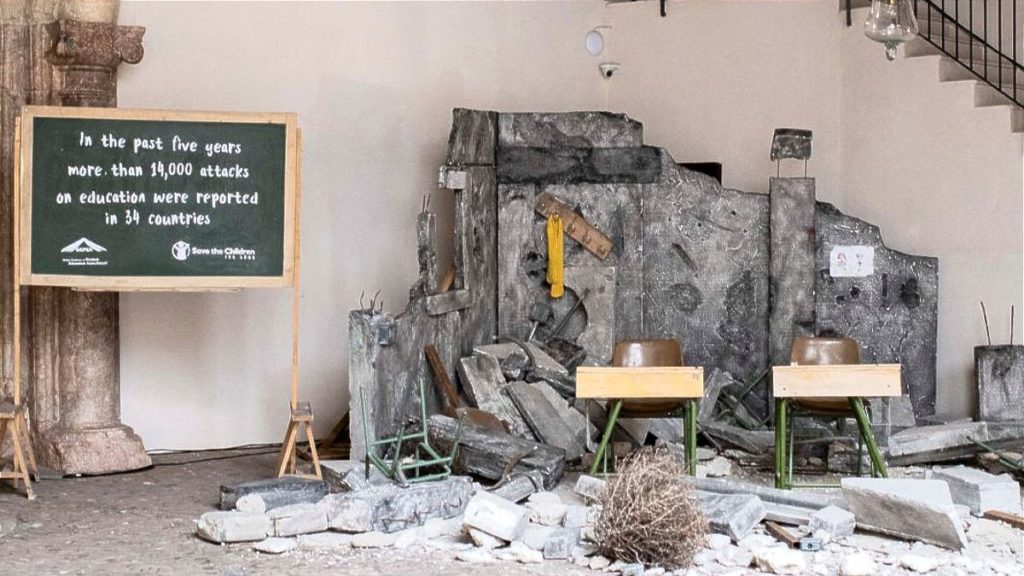GCPEA News
Equatorial Guinea is the 91st country to endorse Safe Schools Declaration
GCPEA PRESS RELEASE, July 8, 2019
(July 8, 2019 – New York) Equatorial Guinea is the 91st country to endorse the Safe Schools Declaration, an inter-governmental commitment to better protect students, teachers, schools, and universities during armed conflict, said the Global Coalition to Protect Education from Attack (GCPEA) today.
With Equatorial Guinea’s endorsement, two-thirds of the current UN Security Council member states, and 23 African Union members, have now joined the Declaration. This signals further international consensus on the urgent need to protect education from targeted and indiscriminate attacks.
“Attacks on schools were identified early on by the UN Security Council as one of the six grave violations against children taking place in times of conflict,” said Diya Nijhowne, GCPEA Executive Director. ”We look forward to a future in which all Security Council members commit to ensuring safe education for all, even in the context of war.”
The latest endorsement was announced immediately following the Third International Conference on Safe Schools, hosted by the governments of Spain, Argentina, and Norway, together with GCPEA, on May 27-29, 2019, in Palma de Mallorca. The conference marked the fourth anniversary of the Declaration, which was launched in Oslo, Norway, in May 2015.
An installation of a bombed-out classroom was placed in Can Balaguer Cultural Centre for the Third International Conference on Safe Schools’ welcome receptions.
Copyright Ministry of Foreign Affairs, European Union and Cooperation of Spain.
Delegations from 80 states and 35 organizations, including the UN, civil society, and academia, came together to discuss practical ways to improve protection of education during armed conflict. States re-affirmed their commitment to implementing the Safe Schools Declaration and accelerating progress towards realizing the right to education for all.
At the conference, Norway announced that, in 2020, it will establish a network of states to facilitate peer-to-peer exchange in implementing the Safe Schools Declaration. Spain highlighted that it is developing an international training program to foster a deeper understanding of how to operationalise the Guidelines for Protecting Schools and Universities from Military Use during Armed Conflict.
By implementing the Guidelines, a central commitment within the Safe Schools Declaration, armed forces and armed groups can end the use of schools for military purposes, and take concrete measures to ensure that students, teachers, and educational facilities, are better protected from violence, attacks, and threats during armed conflicts.
Queen Letizia of Spain addressed the conference at its closing, and urged all countries to endorse the Safe Schools Declaration.

At the conference, a delegation of children from Ses Rotes Velles school in Santa Ponça presented a manifesto on protecting education from attack to Queen Letizia of Spain.
Copyright Ministry of Foreign Affairs, European Union and Cooperation of Spain.
“Access to safe education for all boys and girls is our shared responsibility. Schools must remain open, and must provide a protective environment because knowledge is a great wealth that allows every human being to develop in the best possible way,” said Queen Letizia of Spain.





